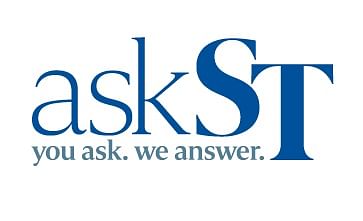askST: Will there be changes to the Vaccinated Travel Lane scheme from Jan 21?
Sign up now: Get ST's newsletters delivered to your inbox

Nothing changes on Jan 21, given that new rules have already been in effect since Dec 23.
PHOTO: ST FILE
Toh Ting Wei
Follow topic:
SINGAPORE - A precautionary move to limit the number of travellers arriving in Singapore for the last four weeks will end on Friday (Jan 21).
The Government had stopped new ticket sales for vaccinated travel lane (VTL) flights and buses for travel into Singapore from Dec 23 to Jan 20, in response to a growing number of imported Covid-19 cases.
The Straits Times takes a look at what the end of the suspension period means for those hoping to travel.
Singapore suspended the sale of new tickets for entry into the country under the VTL scheme from Dec 23 to Jan 20. What happens on Jan 21?
Nothing changes on Jan 21, given that new rules have already been in effect since Dec 23.
Airlines were still able to sell VTL flight tickets throughout the last four weeks. But they were able to sell tickets for VTL flights that were entering Singapore only on or after Friday (Jan 21).
Similarly, bus operators Causeway Link and Transtar Travel have been allowed to continue selling tickets for entry into Singapore after Jan 21 via the land VTL.
Another move made by the Government in December 2021 was to halve the quota for daily VTL arrivals from Jan 21. This measure has essentially been in effect from Dec 23.
Airlines and bus operators have been selling a smaller allocation of VTL tickets since Dec 23. For instance, the maximum total number of tickets that airlines operating VTL flights can sell for daily arrivals is now capped at 5,000. This is down from the previous quota of 10,000.
Which countries does Singapore have VTLs for?
Singapore has established VTLs for air travel into the Republic for 24 countries. They comprise Australia, Brunei, Cambodia, Canada, Denmark, Fiji, Finland, France, Germany, India, Indonesia, Italy, Malaysia, Maldives, the Netherlands, South Korea, Spain, Sri Lanka, Sweden, Switzerland, Thailand, Turkey, the United Kingdom and the United States.
Three planned VTLs - for Qatar, Saudi Arabia and the United Arab Emirates - have been deferred until further notice.
For the land VTL, Singapore has set up a bilateral arrangement with Malaysia.
What are the testing requirements for VTLs?
Prior to the emergence of the Omicron variant in late November, fully vaccinated air travellers who enter Singapore under the VTLs had to take a Covid-19 polymerase chain reaction (PCR) test prior to departure, and one more after arrival.
Travellers entering under the land VTL had to take a Covid-19 PCR test or an antigen rapid test (ART) prior to departure, and an ART on arrival.
They were free to go about their activities after they test negative in both tests.
But testing requirements have been tightened since Omicron emerged. VTL travellers are now required to take a self-administered Covid-19 ART on days 2, 4, 5 and 6 after arrival. They also have to undergo a supervised ART on days 3 and 7 after arrival.
Testing requirements for air VTL travellers have, however, been eased on one front - they can now take a professionally administered ART for their pre-departure test, in place of the more expensive PCR test.
What other options are there if I am unable to enter Singapore under the VTL scheme?
Travellers who are unable or unwilling to enter Singapore under the VTL scheme can instead enter under the four-tiered travel health control measures. Those entering under this set of measures do not have to be fully vaccinated against Covid-19.
Countries and regions deemed to be of lowest risk of Covid-19 infections are grouped in Category I, while countries deemed to be of highest risk of infections are in Category IV. The quarantine and testing requirements get stricter in line with the increase in risk classification.
For instance, a traveller coming from a country or region in Category I - Hong Kong, Macau, China and Taiwan - will be able to go about his activities after testing negative in their pre-departure and on-arrival Covid-19 swab tests.
In contrast, a traveller coming from a country in Category IV is required to take a PCR test for his pre-departure test. After arrival, he has to serve a 10-day stay-home notice at a dedicated facility, and test negative in another PCR test before he can go about his activities.
More details can be found at this website.


